When you slip and fall on someone else's property, determining responsibility can feel overwhelming or even impossible — particularly when you are also dealing with the pain of injuries and mounting medical bills. Understanding who may be liable for your fall is crucial to protecting your rights and securing the compensation you deserve. With Florida slip and fall claims on the rise, including 90,610 non-fatal unintentional falls recorded in 2024 according to the Florida Department of Health, these incidents represent a significant portion of personal injury cases across the state.
At Michles & Booth, we have helped Northwest Florida residents through slip and fall cases for over 20 years. Our experienced personal injury attorneys understand premises liability law and are here to guide you through this challenging time.
The Rise of Fall Accidents in Florida: Key Statistics
Statistics from the Florida Department of Health reveal the serious nature of fall injuries in our state. In 2024, there were 144,380 hospitalizations from non-fatal unintentional injuries, with fall accidents representing a substantial portion of these cases. As 2025 comes to a close, this trend of increasing fall-related injuries continues to raise concerns about the safety of both public and private spaces in Florida.
The data shows a concerning upward trend in both hospitalizations and fatalities from fall accidents. These numbers represent real people whose lives have been disrupted by preventable accidents on others' property.
Understanding Premises Liability: Who Can Be Responsible for Your Slip and Fall Accident
Premises liability law governs slip and fall cases, establishing when property owners can be held responsible for injuries that occur on their property. Under this law, property owners have a legal duty to maintain reasonably safe conditions and to warn visitors of potential dangers they may not easily discover. If a property owner fails to meet this duty and an injury results, they may be held liable.
Several parties may be responsible for slip and fall accidents, depending on the nature of the property and the circumstances surrounding the incident:
Commercial Property Owners and Businesses
Retail customers have the right to expect safe shopping environments. Store owners, restaurant operators, and other commercial property managers are required to maintain safe premises for their customers. They are responsible for addressing hazards like:
- Wet or slippery floors from spills or cleaning
- Uneven surfaces or broken walkways
- Poor lighting in parking lots or stairwells
- Debris or obstacles blocking walkways
- Defective handrails or steps
Commercial property owners must protect customers from potential dangers and promptly address wet, slippery floors and other hazardous conditions to prevent serious injuries.
Private Property Owners
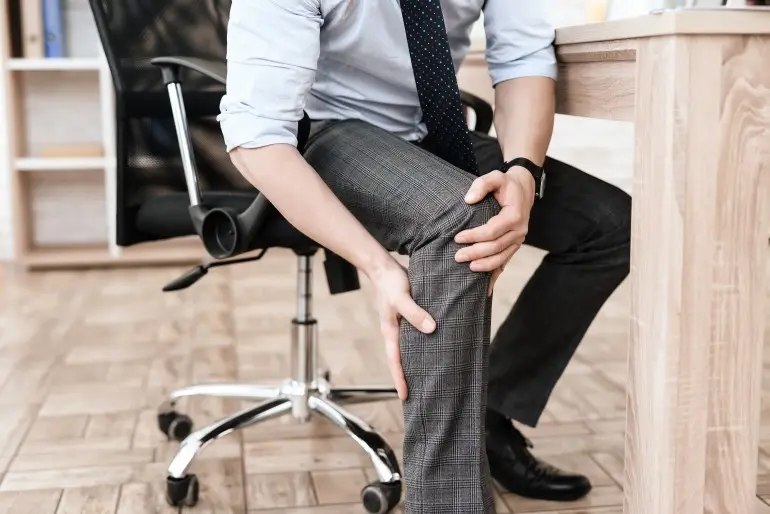
Homeowners and private property owners must maintain safe conditions in areas where visitors are expected with the owner's permission. This includes:
- Common areas in apartment complexes
- Sidewalks and driveways
- Pool areas and recreational facilities
- Stairways and entrances
Private property owners can be held liable when poor maintenance creates tripping hazards or other dangerous conditions that result in fall injuries.
Government Entities
Slip and fall accidents on government property, such as public sidewalks, parks, or government buildings, are subject to different rules and shorter filing deadlines for claims. These premises liability cases require careful attention to procedural requirements that differ from private property incidents, making it even more important to immediately contact our experienced slip and fall attorneys after an accident.
Property Management Companies
When property owners hire management companies to maintain their premises, these companies may share liability for accidents resulting from poor maintenance or negligent oversight of dangerous conditions, including the lack of security in known high-crime areas.
When Property Owners Are Responsible
Property owners can be held liable for your slip and fall accident when certain conditions are met. The key factor is whether the property owner knew or should have known about the dangerous condition that caused your fall.
Actual Knowledge vs. Constructive Knowledge
Actual knowledge means the property owner was directly aware of the hazardous condition. For example, if store employees witnessed a customer spill liquid on the floor but failed to clean it up or warn other customers, the store owner had actual knowledge.
Constructive knowledge is more complex. This means the dangerous condition existed long enough that a reasonable property owner should have discovered and addressed it through regular inspection and maintenance. A puddle of water that sits in a grocery store aisle for hours during business hours might establish constructive knowledge.
State Law on Transitory Foreign Substances
State statute § 768.0755 addresses slip and fall accidents involving temporary hazards, such as spills, in business establishments. Under premise liability slip and fall law, if you slip on a "transitory foreign substance" (such as water, food, or other temporary hazards), you must prove the business had either actual or constructive knowledge of the dangerous condition.
This statute requires businesses to demonstrate they regularly inspect their premises and maintain reasonable cleaning procedures. If they cannot provide evidence of proper maintenance protocols, this may help establish their liability for your accident.
Types of Visitors and Their Rights
State law recognizes different categories of visitors, each with varying levels of protection:
Invitees
Invitees enter property with the owner's permission, typically for the owner's benefit, such as customers in stores or restaurants. Property owners owe invitees the highest duty of care, including:
- Regular inspection for dangerous conditions
- Prompt repair or warning of known hazards
- Reasonable maintenance of the property
Licensees
Licensees enter property with permission but primarily for their own benefit, such as social guests. Property owners must warn licensees of known dangerous conditions, but are not required to inspect for hidden hazards.
Trespassers
Trespassers enter property without permission and generally have limited rights. Property owners are typically not liable for injuries to trespassers unless they intentionally harm them or the property contains attractive nuisances that might draw children.
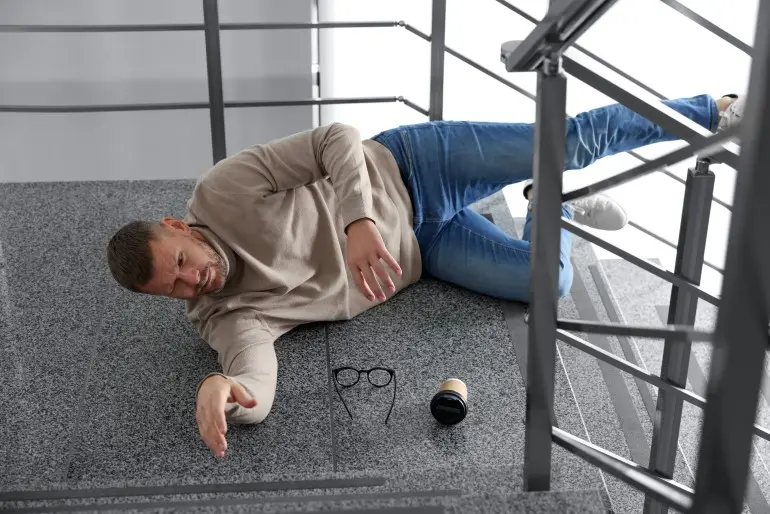
How to Prove Negligence in a Slip and Fall Case
To hold a property owner accountable in a slip and fall case, you must prove four key elements:
- Legal duty: You must show that the property owner owed you a legal obligation to maintain safe conditions. This duty varies based on your status as an invitee, licensee, or trespasser.
- Breach of duty: Evidence must demonstrate the property owner failed to meet their legal obligation by not addressing a dangerous condition or failing to warn visitors about it.
- Causation: Demonstrate that the dangerous condition directly caused your fall and injuries.
- Damages: Finally, you must demonstrate measurable losses from your accident, including medical expenses, lost wages, pain and suffering, and other damages.
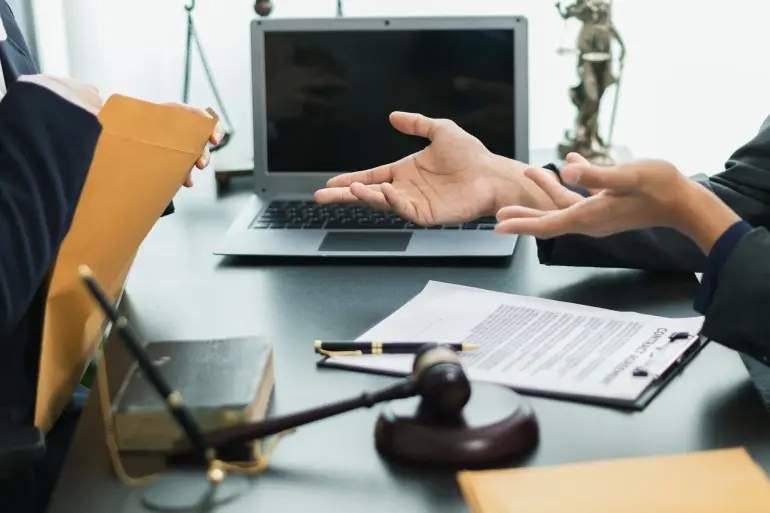
Florida follows a modified comparative negligence rule, which means your compensation could be reduced if you are found partially at fault for the accident. For instance, if you were distracted while walking and overlooked a hazard, your compensation could be lowered based on your percentage of fault.
However, even if you are partially at fault, you can still seek compensation, as long as your responsibility for the accident is less than the property owner's. It is also important to note that Florida gives you two years from the accident date to file a personal injury lawsuit, although certain circumstances may impact this timeframe.
Understanding Your Compensation Options
If you are injured in a slip and fall accident, you may be entitled to two types of compensation: economic and non-economic damages. Economic damages refer to tangible financial losses, including medical bills and lost wages. Non-economic damages encompass more subjective impacts, such as pain and suffering or emotional distress.
Here is a breakdown of the damages you may be able to claim:
The amount of compensation you receive will depend on the severity of your injuries and the evidence supporting your claim. Understanding the difference between economic and non-economic damages helps ensure you recover fair compensation for your losses.
What to Do After Your Slip and Fall Accident
Taking immediate action can strengthen your fall case and protect your rights:
1. Seek Immediate Medical Attention
Even if your fall injuries seem minor, see a healthcare provider promptly. Some injuries, particularly head trauma or soft tissue damage, may not show symptoms immediately but can have serious long-term effects. Medical records from your treatment will serve as crucial evidence for your slip and fall claim.
2. Document the Scene
If possible, take photos of the accident location, including:
- The hazardous condition that caused your fall
- Your injuries
- The surrounding area
- Any warning signs (or lack thereof)
- Weather conditions if outdoors
3. Report the Accident
Notify the property owner or manager immediately and ensure they create an official incident report. Request a copy of this report for your personal records, as it can serve as important evidence to support your claim in premises liability cases. The sooner you report the accident, the stronger your case may be.
4. Gather Witness Statements
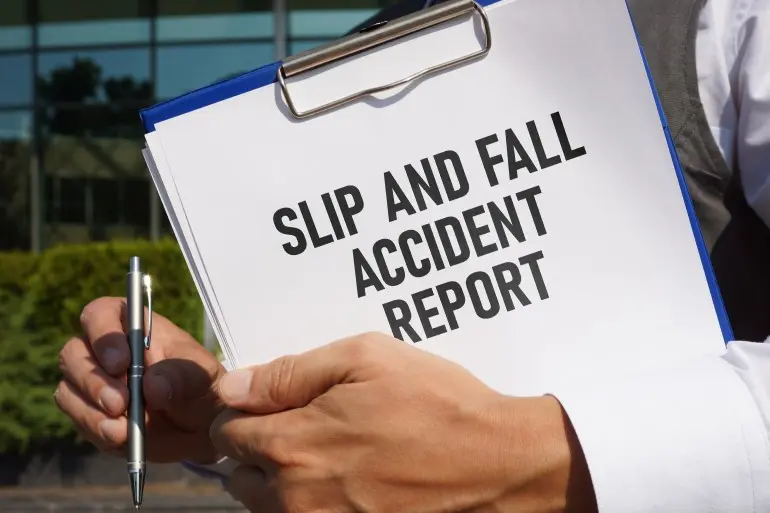
Collect the contact information of anyone who witnessed your accident, including their names, phone numbers, and email addresses. Their testimony can be crucial in establishing what happened during the fall and confirming the dangerous condition of the property at the time. This can strengthen your case and support your version of events.
5. Preserve Evidence
Keep the shoes, clothing, and any other items you were wearing during the accident, as they may provide important evidence for your case. Do not repair, alter, or discard any items related to the accident, as they could be vital in proving the conditions that led to your injury. Preserving all relevant evidence helps protect your legal rights.
Why Legal Representation Matters
Slip and fall cases can be complex, and insurance companies often employ tactics to reduce or deny claims. Having an experienced attorney on your side can greatly improve your chances of achieving a favorable outcome.
Our skilled lawyers will thoroughly investigate the details of your accident, gather evidence, and consult with medical professionals or accident reconstruction experts to build a strong case.
Additionally, Michles & Booth works on a contingency fee basis, meaning you will not pay legal fees unless compensation is secured. This structure enables you to have 5-star-rated legal counsel without the financial strain, allowing you to focus on healing while your attorney fights for the justice and compensation you deserve.
Moving Forward After Your Accident
Understanding who is responsible for your slip and fall accident is the first step toward recovery. While the legal process may seem daunting, you do not have to face it alone.
At Michles & Booth, we have been helping victims of falls in Northwest and Central Florida recover compensation for their injuries for over two decades. Our law firm handles cases across the region, and we are dedicated to helping you understand your rights and get your life back on track. Contact us today to learn more about how we can assist you.
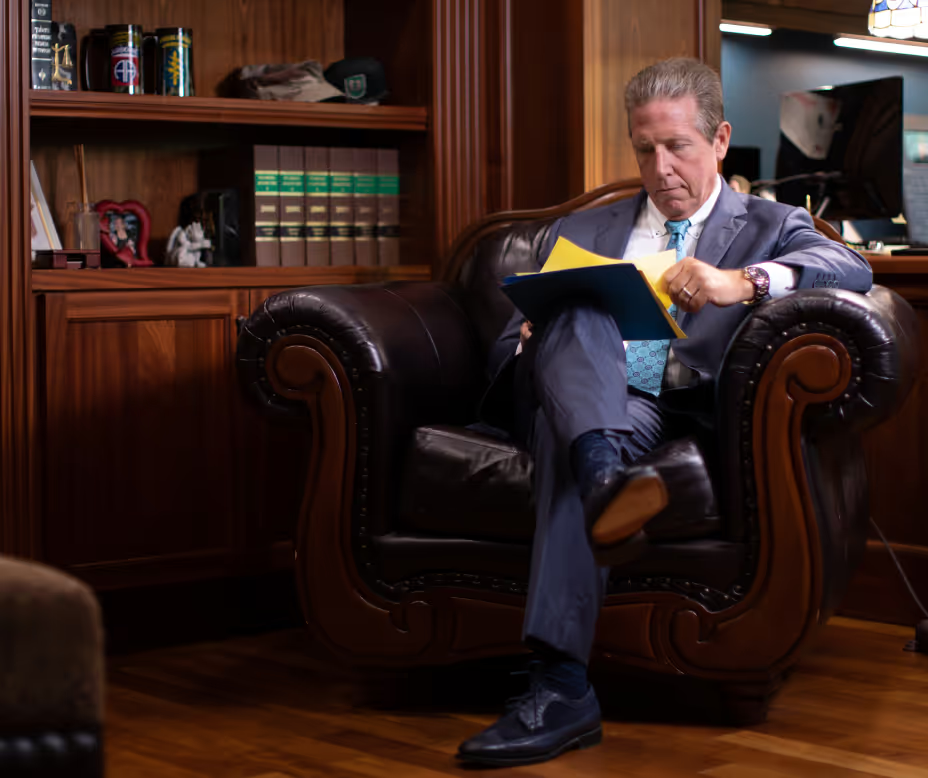
Schedule a Free Consultation with Our Attorneys Today!
get a Free Consultation
(850) 438-4848
Get Help Understanding Your Rights
Contact Michles & Booth for a free consultation to discuss your case and learn about your rights.

Heading
Lorem ipsum dolor sit amet, consectetur adipiscing elit. Phasellus vel est vel sem porttitor ullamcorper. Aliquam hendrerit vestibulum quam ac posuere. Vestibulum ultricies enim quam, ac vestibulum mauris iaculis ac.

(850) 438-4848
.svg)



.svg)

